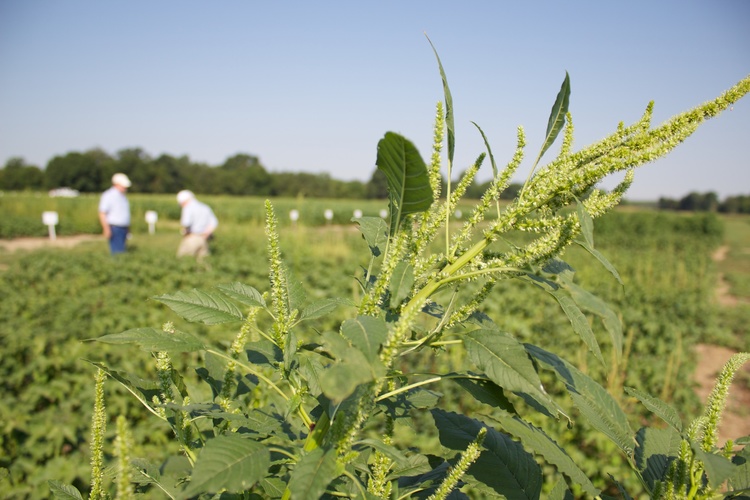Palmer Pigweed Officially Named “Most Troublesome Weed” In U.S.
It’s now official. A survey conducted by the Weed Science Society of America (WSSA) has ranked Palmer amaranth, also known as Palmer pigweed, as the most troublesome weed in the U.S.
“We certainly weren’t surprised to find Palmer amaranth at the top of the U.S. list,” says Lee Van Wychen, Ph.D., science policy director for WSSA. “This weed can have a devastating impact on crop yields. Its stems are tough enough to damage rugged farm equipment, and it is extremely prolific. A single Palmer amaranth plant can produce as many as a million seeds during a growing season.”

Hundreds of weed scientists, extension agents and practitioners across 49 U.S. states, Puerto Rico and eight Canadian provinces participated in the 2015 WSSA survey. They provided input on both the most common weeds (those most frequently seen) and the most troublesome weeds (those most difficult to control) in 26 different cropping systems and natural areas. The lists below are based on an aggregation of their responses, which mentioned more than 650 weeds at least once.
Most Troublesome Weeds, U.S.
1. Palmer amaranth
2. Morningglory (ivyleaf, pitted, tall, sharppod)
3. Common lambsquarters
4. Waterhemp (common, tall)
5. Horseweed (marestail)
Most Common Weeds, U.S.
1. Foxtail (giant, green, yellow)
2. Common lambsquarters
3. Crabgrass (large, smooth)
4. Palmer amaranth
5. Morningglory (ivyleaf, pitted, tall, sharppod)
The Weed Science Society of America, a nonprofit scientific society, was founded in 1956 to encourage and promote the development of knowledge concerning weeds and their impact on the environment. The Society promotes research, education and extension outreach activities related to weeds, provides science-based information to the public and policy makers, fosters awareness of weeds and their impact on managed and natural ecosystems, and promotes cooperation among weed science organizations across the nation and around the world. For more information, visit www.wssa.net.